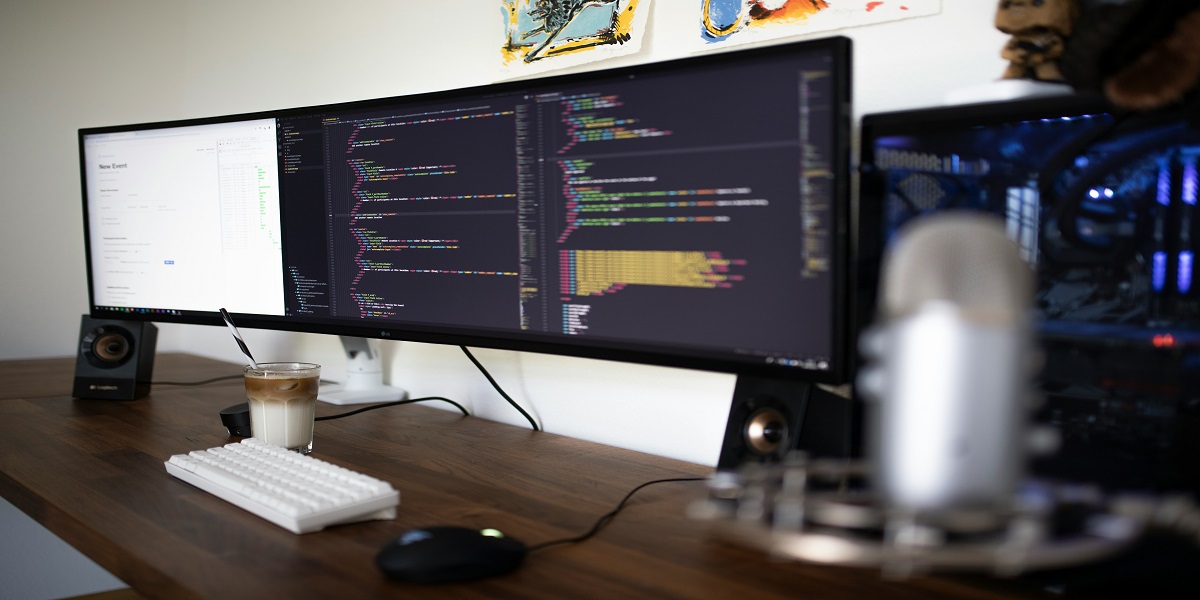
How AI is Transforming Social Media For Brands and Businesses
- By Sam Smith
- 28-03-2024
- Social Media
The use of Artificial Intelligence (AI) has been rising across Industries in recent times. As AI capabilities improve, Social Media Platforms are increasingly leveraging these Technologies to improve the user experience and uncover insights about their massive user bases.
According to recent statistics, 74% of people use Social Media Daily and are now familiar with interacting with AI Technologies like Chatbots and Recommendation Engines on these platforms. Key Social Media Platforms like Facebook, Instagram and Twitter are integrating AI capabilities ranging from Automated Content Creation to Sentiment Analysis of user posts.
For brands, understanding how AI is transforming Social Media can reveal new opportunities to better engage and understand their audiences. This article will explore the key ways AI is changing Social Media Experiences today and what it means for Brands and Businesses.
Automated Content Creation
AI is enabling Automated Content Creation across Social Media in many ways. AI technology allows for the generation of posts, advertisements, captions, hashtags, and more without human effort.
AI can analyze data to come up with relevant content ideas. Tools like ChatGPT can generate Natural Language Social Media Copy based on prompts. One example is OwlyWriter, which instantly generates captions and content ideas tailored for each social media network like Facebook, Instagram, or Twitter.
By Automating Content Creation, AI allows Brands and Social Media Managers to Scale Content production and test different types of posts and messaging while saving time. However, overreliance on AI for content can also lead to generic, repetitive posts if not thoughtfully guided and overseen.
Sentiment Analysis
One of the key ways AI is being used on Social Media Platforms is through Sentiment Analysis Tools and Techniques.
Sentiment analysis involves using Natural Language Processing (NLP) and Machine Learning Algorithms to analyze the Sentiment, Emotions, and Opinions expressed by users in their posts, comments, reviews, and other content on Social Media. AI tools can quickly scan large volumes of Textual data to identify whether the sentiment towards a brand, product, or topic is positive, negative or neutral.
For Marketers and Brands, sentiment analysis provides valuable insights into how consumers perceive their company and products. By understanding user sentiment, brands can identify potential issues or opportunities and adapt their Social Media Strategy accordingly.
Some of the key ways brands are leveraging AI Powered sentiment analysis on Social Media include:
- Monitoring brand mentions and feedback in real-time
- Analyzing customer satisfaction and pain points
- Gathering feedback on new products or campaigns
- Identifying influencers and advocates
With AI continuously scanning social conversations, brands can stay on top of emerging trends, controversies and changes in consumer sentiment. This enables them to respond quickly, mitigate crises, and tailor messaging and engagement.
Moderating Harmful Content
Social Media Platforms are using AI to help detect and quickly remove offensive, dangerous, or inappropriate content. Automated moderation tools can identify text, images, and videos that violate a platform's policies at scale. According to research by New America, AI has enabled companies like Facebook and YouTube to "remove over 90% of violating content automatically". By utilizing machine learning and natural language processing, these tools can be trained to flag content that matches databases of known inappropriate or dangerous material.
However, AI content moderation also has accuracy issues. The algorithms driving automated moderation can struggle with nuanced content like satire or critique that requires more context to judge correctly. There are also concerns about racial, gender, and ideological biases creeping into the training data that inform the AI systems. So while AI has enabled platforms to moderate content at an unprecedented scale, human moderators are still a necessary backstop to review appeals and deal with more complex judgment calls.
Generating Metrics and Analytics
AI is playing an increasingly important role in providing marketers, analysts, and strategists with valuable metrics and insights generated from social media activity and engagement. AI tools can quickly process massive amounts of social data to identify trends, track performance, and uncover insights that would be difficult or impossible to find manually.
Some of the key ways AI powers social media analytics include:
- Sentiment analysis: AI can analyze textual content and comments to determine the sentiment (positive, negative, neutral) behind mentions of a brand, product, or topic.
- Audience segmentation: Machine learning algorithms can segment social audiences into distinct groups based on interests, behaviors, demographics.
- Performance tracking: AI tools can track the performance of social content across platforms and benchmark metrics like reach, engagement, and conversions.
- Identifying influencers: By analyzing engagement and network connections, AI can determine top influencers for a brand to connect with.
- Predictive analytics: AI analyzes historical data to find patterns and generate forecasts for future social media performance.
Top tools like Content Studio, Socialbakers, and Sprout Social leverage AI to generate powerful social media analytics and insights for brands. With AI processing huge volumes of data 24/7, marketers can gain a detailed understanding of their audiences and campaigns.
Chatbots and Virtual Assistants
One of the most common applications of AI on social media platforms are chatbots and virtual assistants. These AI bots engage in conversations and provide services to social media users. According to Tidio, over 40% People prefer Chatting with bots for quick inquiries rather than waiting on hold. Social media chatbots can provide customer service, support, and product recommendations.
For example, Bank of America uses the chatbot Erica to help users manage their finances on social media. Erica can look up account balances, make payments, and provide credit report info. The Duolingo chatbot on Facebook Messenger helps people learn languages through conversational instruction. Lidl’s Monsieur Cuisine bot shares recipes and assists people with meal planning and grocery shopping on Messenger. These AI bots enhance the user experience on social platforms by providing helpful services through natural conversations.
Looking ahead, the use of chatbots and virtual assistants across social platforms will likely continue growing. As AI conversation technology improves, bots will become smarter and deliver more personalized and useful recommendations and services for users.
Personalized Experiences
AI algorithms are allowing social media platforms to provide more customized and relevant experiences for each user. By analyzing user data and activity, AI can determine individual interests and preferences. Social media platforms are then using this to tailor content and advertisement recommendations specifically for each person.
For example, TikTok's recommendation algorithm learns about each user's unique interests based on factors like what videos they watch, engage with, and share. It then recommends content to keep users engaged. Users see a FYP (For You Page) filled with videos tailored just for them.
Similarly, AI powers Facebook and Instagram algorithms to create personalized feeds and recommend relevant posts users are likely to enjoy. On Facebook, machine learning additionally allows advertisers to target custom audiences who are more likely to respond to their ads based on demographics, interests, behaviors and more.
Users may appreciate more relevant content and ads tailored to their tastes. However, some criticize the "filter bubble" effect of only seeing perspectives that align with your own views (HBR.org, 2023). Overall, AI is allowing social platforms to provide each user with an increasingly personalized experience.
Analyzing Audience Data
Artificial intelligence is increasingly being used to analyze audience data on social media to provide valuable insights for brands. AI can process massive amounts of user data to identify demographics, interests, and behavior patterns. This allows brands to better understand their target audiences and current customers.
Sentiment analysis is a key way AI analyzes social data. AI can detect the sentiment and emotions behind social posts to assess how audiences feel about a brand, product or issue. Brands can then tailor content and messaging appropriately. AI also applies machine learning to uncover insights like which types of content perform best and what drives engagement from different audience groups.
According to an article on LinkedIn, AI-powered sentiment analysis on social media exposes trends faster and more accurately than manual analysis alone. It provides a nuanced, real-time understanding of how target audiences respond to marketing campaigns and brand messaging.
In summary, the use of artificial intelligence to process and analyze audience data is enabling brands to gain valuable insights that can significantly improve their social media marketing.
Automating Social Media Management
AI tools are being used more and more to help automate various aspects of managing social media for brands and businesses. Some of the key ways AI can automate social media management include:
- Automated post scheduling: AI tools can suggest the best times to post content based on past performance data and then automatically schedule posts in advance at optimal times. This saves social media managers significant time and effort.
- Auto-responding to users: AI-powered chatbots and virtual assistants can help brands maintain customer service and respond to user comments or messages automatically 24/7. This provides faster response times and frees up human staff.
- According to a study by ClickUp, using AI chatbots to automate responses to customers on social media can reduce response times by up to 98%.
- Automating post creation: Some AI tools can generate original social media post captions or even entire posts from scratch based on brand guidelines, past posts, and performance data. This can supplement human posting efforts.
Overall, AI automation enables brands to scale their social media efforts and presence exponentially while saving time and money. However, human oversight is still important to ensure content quality and brand consistency.
Uncovering Trends and New Audiences
AI allows brands to uncover new trends and audiences on social media that they may have otherwise missed. By analyzing massive amounts of social data and conversations, AI can identify rising topics, influencers, and communities relevant to a brand.
For example, an athletic apparel company could use AI to detect new fitness trends and then target social ads at micro-influencers driving those trends. The AI would scan social platforms for spikes in mentions of new workout programs, gear, etc. It would then suggest influencers and audiences for the brand to connect with around that trend.
According to one source, "AI enhances everything from content planning and creation to analyzing performance and predicting trends. Using AI, you can discover what content resonates with your audience."
By leveraging AI to uncover social media trends and audiences early, brands can stay ahead of the curve with relevant messaging and engagement tactics.
Recent blog

Instagram Reels: A Game-Changer For E-commerce Marketing
Digital Marketing | 30-04-2024
Understanding Enterprise Application Integration: The Benefits of ESB for EAI
Software | 29-04-2024




